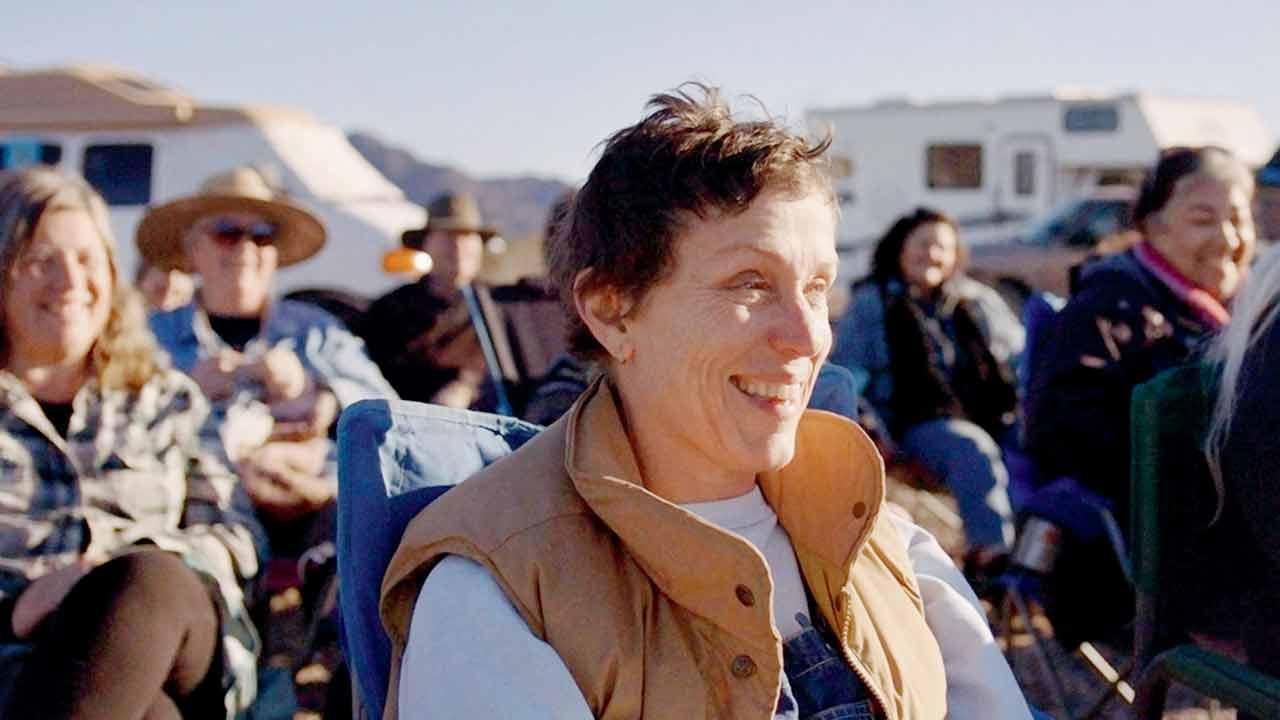Written for the screen by Chloe Zhao, based on a book by Jessica Bruder, the filmed journey comes alive with the sense of adventure, perseverance, resilience and spirit of individual freedom that permeates every scene.

Nomadland
Written for the screen by Chloe Zhao, based on a book by Jessica Bruder, the filmed journey comes alive with the sense of adventure, perseverance, resilience and spirit of individual freedom that permeates every scene. This is a story of survival against odds and on one’s own terms. Fern (Frances McDormand) lives as a van-dwelling modern-day nomad. When the gypsum plant in Empire, Nevada closed, the town of Empire quite literally collapsed. In six months, its entire zip code was eliminated. Fern, grieving a life that’s been ripped away from her, must survive on seasonal work due to her choice to live on the open roads of the American West. She may be unshackled from conventionalism and conformism by the loss of her job and the death of her husband, but there’s a price she is paying for choosing to be houseless.
Replete with poetic dialogue and soliloquies between Fern and her fellow nomads, against the backdrop of vast landscape shots and natural sounds, the narrative captures the unique way of life as much as it highlights the challenges and the real life nomads that populate it.
The movie is as much a triumph of spirit (characters) as it is of hard work (by the director and lead actor). McDormand literally lives her role, experiencing the triumphs and tribulations of a real nomad all through the filming that also included real-life nomads as significant characters in the film. Zhao’s simple yet brilliant evocation of an emotionally distanced life of choice owes as much to McDormand’s subsuming of her own true self as it does to Zhao’s own unique storytelling technique. This is aching, true-blue realism at its finest.
 Subscribe today by clicking the link and stay updated with the latest news!" Click here!
Subscribe today by clicking the link and stay updated with the latest news!" Click here!







_d.png)



